Yesterday’s live coverage of the Ukraine conflict can be found here. An archive of our liveblogs can be found here. For an overview and analysis of this developing story see our latest podcast.
Please help The Interpreter to continue providing this valuable information service by making a donation towards our costs.
For links to individual updates click on the timestamps.
For the latest summary of evidence surrounding the shooting down of flight MH17 see our separate article: Evidence Review: Who Shot Down MH17?
The Ukrainian military’s ATO Press Centre has published their evening report for the day.
According to the military, Russian-backed forces have stepped up their attacks today, resuming attacks in the Mariupol area with mortars.
At around 10 am, Russian-backed forces shelled Ukrainian positions in Chermalyk with 82 mm mortars and fired on Gnutovo with grenade launchers.
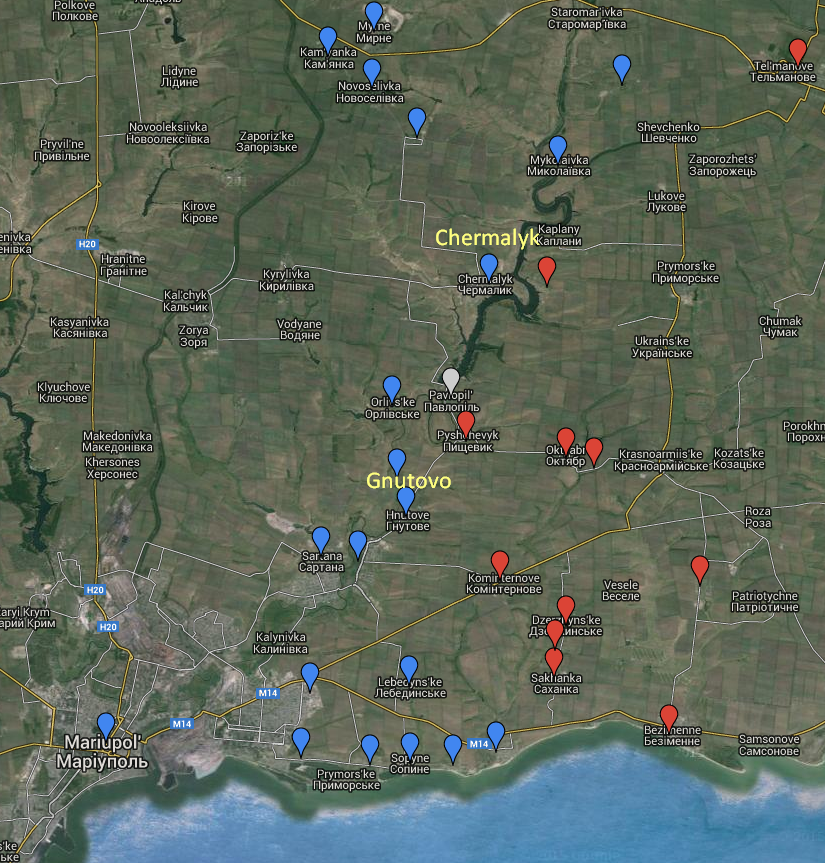
At 16:30, the ATO Press Centre says that a Ukrainian defensive position in Marinka, west of Donetsk, was fired on with genade launchers, anti-aircraft artillery and small arms.
There were corresponding reports of fighting in the area on social media this afternoon:
Translation: Vkontakte: Marinka “15:30 – banging again”
At around 16:00, Ukrainian troops in the village of Luganskoye, north-east of Gorlovka, came under fire from small arms.
In the Lugansk region, the military reports, there was a small arms attack near the village of Zholobok, on the front line on the Bakhmutka highway, at 13:10.
— Pierre Vaux
Two YouTube videos, filmed in separatist-held Gorlovka on September 13 and uploaded yesterday evening, show what appear to be modernised T-72 tanks that could only have come directly from Russia.
This is not the first time such hardware has been seen of course, but some of these tanks carry an interesting modification.
The distinguishing feature of several modernised variants of the T-72, including the BM (obr. 1989), BA and B3, is the ring of Kontakt-5 explosive reactive armour (ERA) wedges around the turret. None of these variants have been exported to Ukraine.
However these tanks also sport an extra ring of ERA blocks below the Kontakt-5 wedges:
Veli-Pekka Kivimäk, a military analyst and contributor to Bellingcat, says that these blocks appear to be Kontakt-1, an earlier form of ERA which is applied more haphazardly across several Soviet-era tank designs.
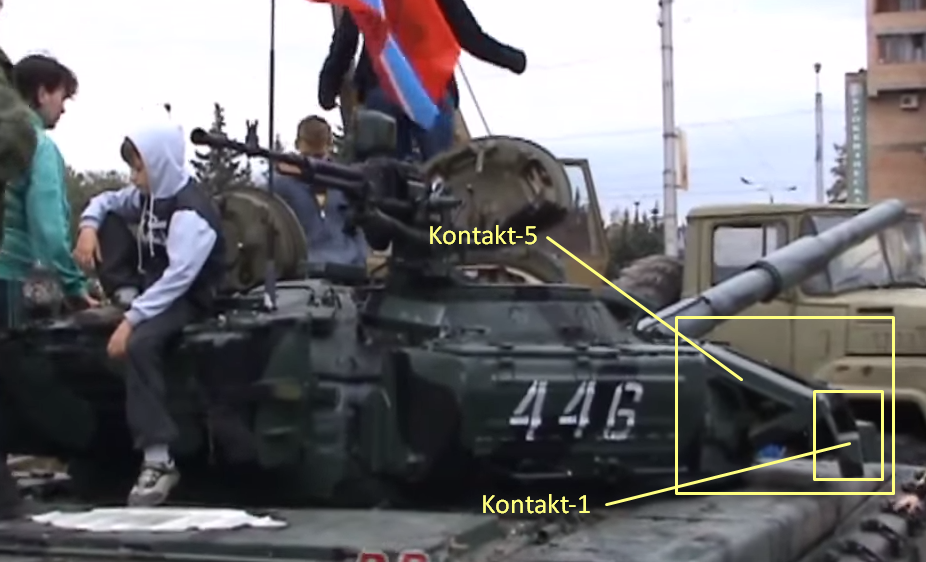
Three tanks with this modification (as well as one T-64) can be seen in the videos.
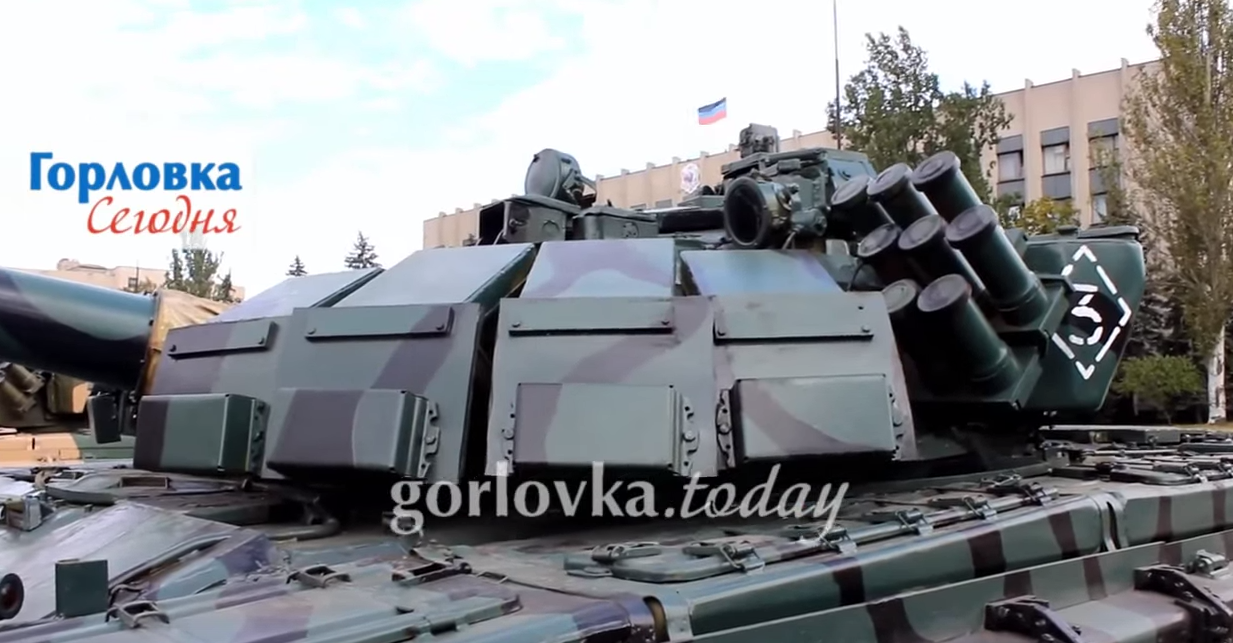
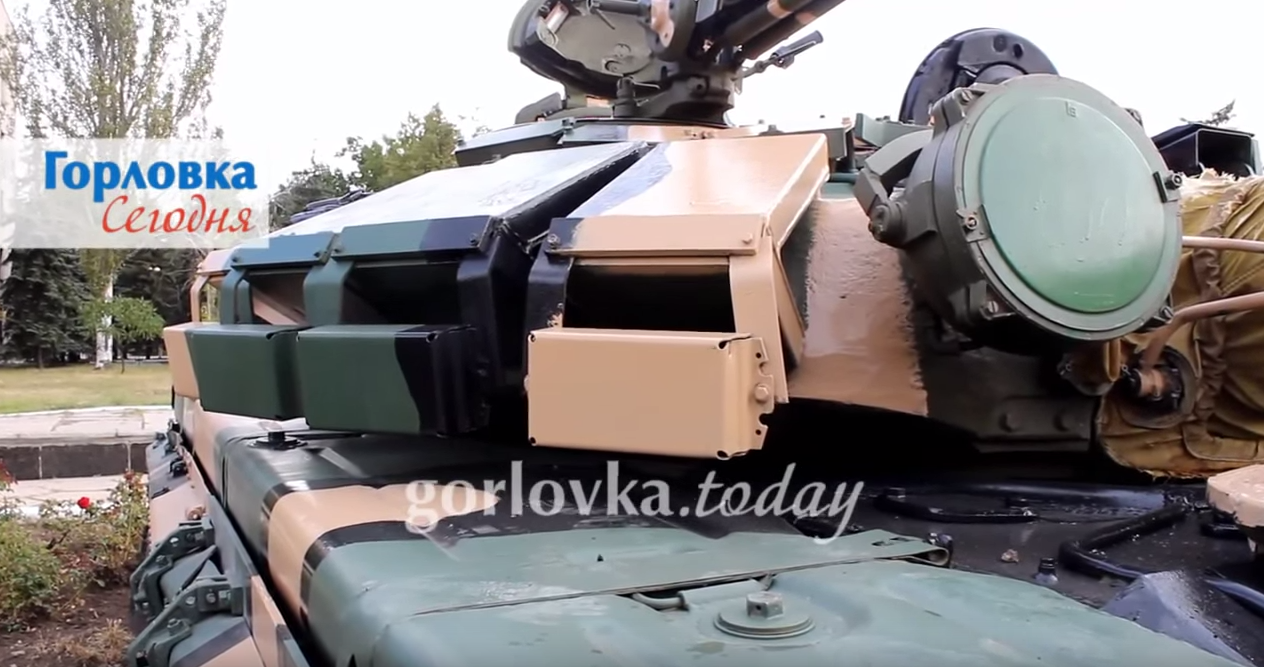
Kivimäki suggests that the application of these extra Kontakt-1 blocks is a customisation.
The addition of extra ERA blocks beneath the Kontakt-5 ring seems aimed at further protecting the vulnerable connection between the turret and the body of the tank.
Certainly, while these tanks are some of the most advanced of their kind in Russian service, with the T-72B3 only entering service in 2013, their burnt-out hulks have been seen on numerous occasions on the battlefields of eastern Ukraine.
However it appears that we have actually missed earlier sightings of such modifications.
This video of Russian-backed fighters in the Donetsk region, uploaded in March this year, clearly shows another tank with the same arrangement of ERA:
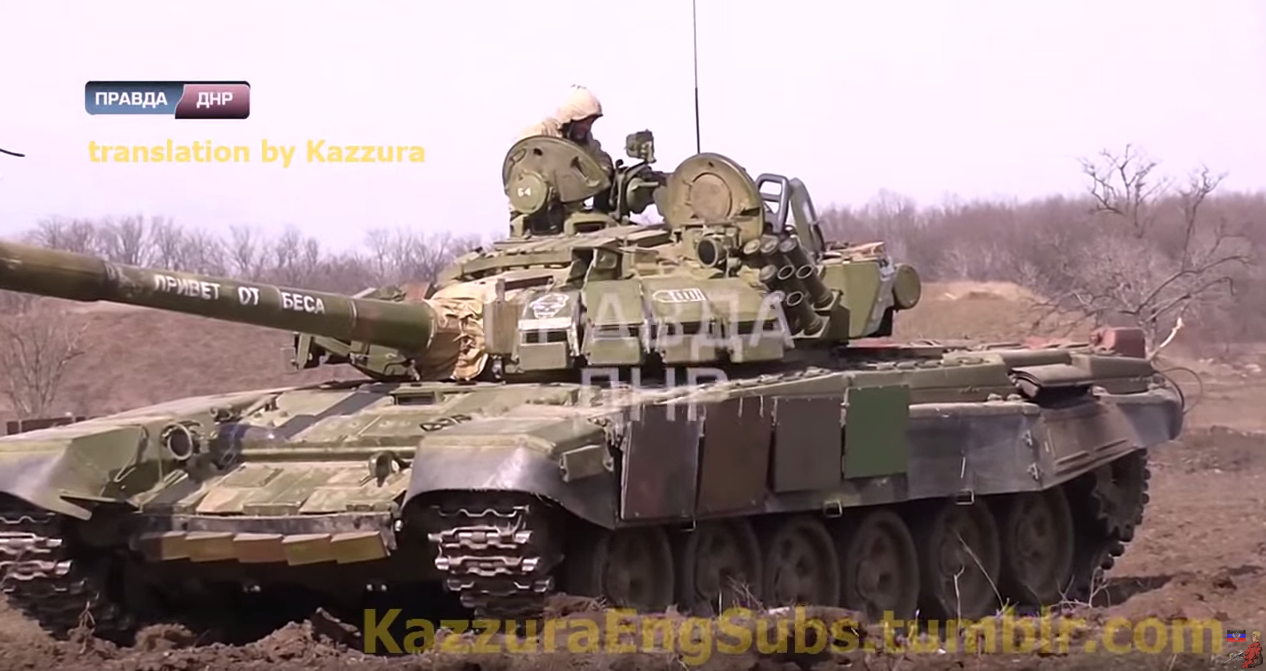
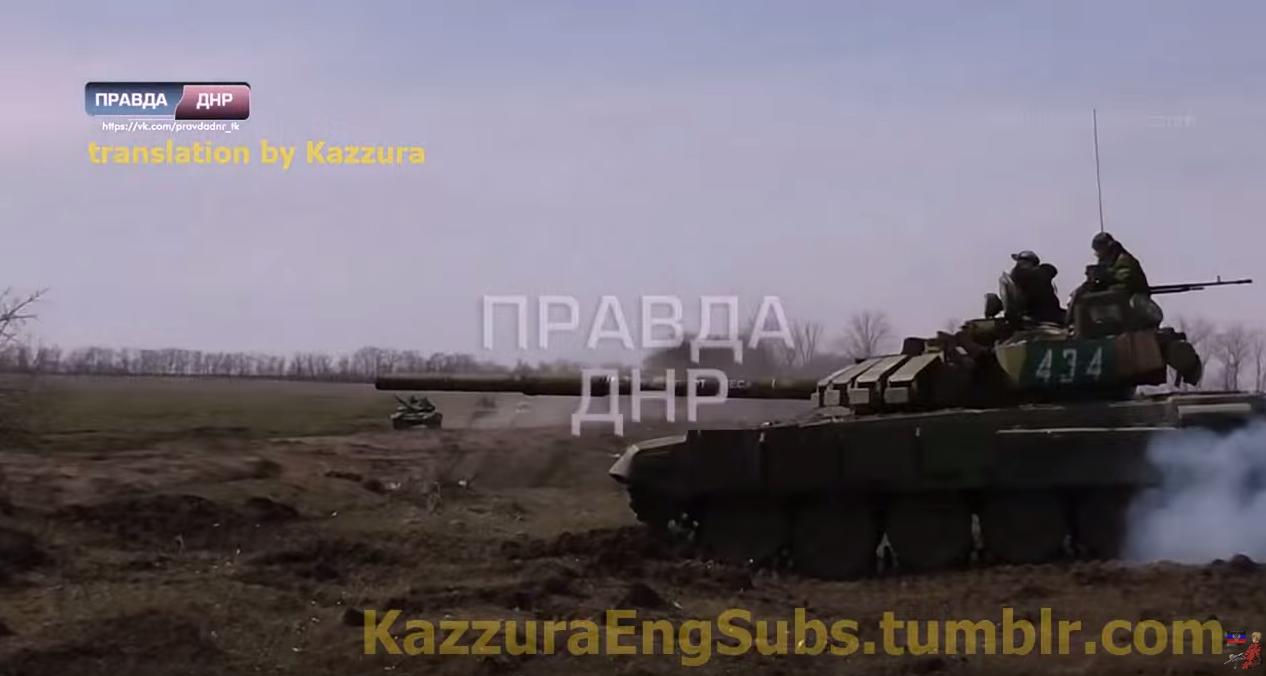
This T-72BM, on the barrel of which is written “Hello from Bes,” indicating Igor Bezler, known as Bes (daemon) a separatist military leader who led the takeover of Gorlovka last year, was operating alongside at least two other T-72BMs, which lacked the extra ERA blocks:
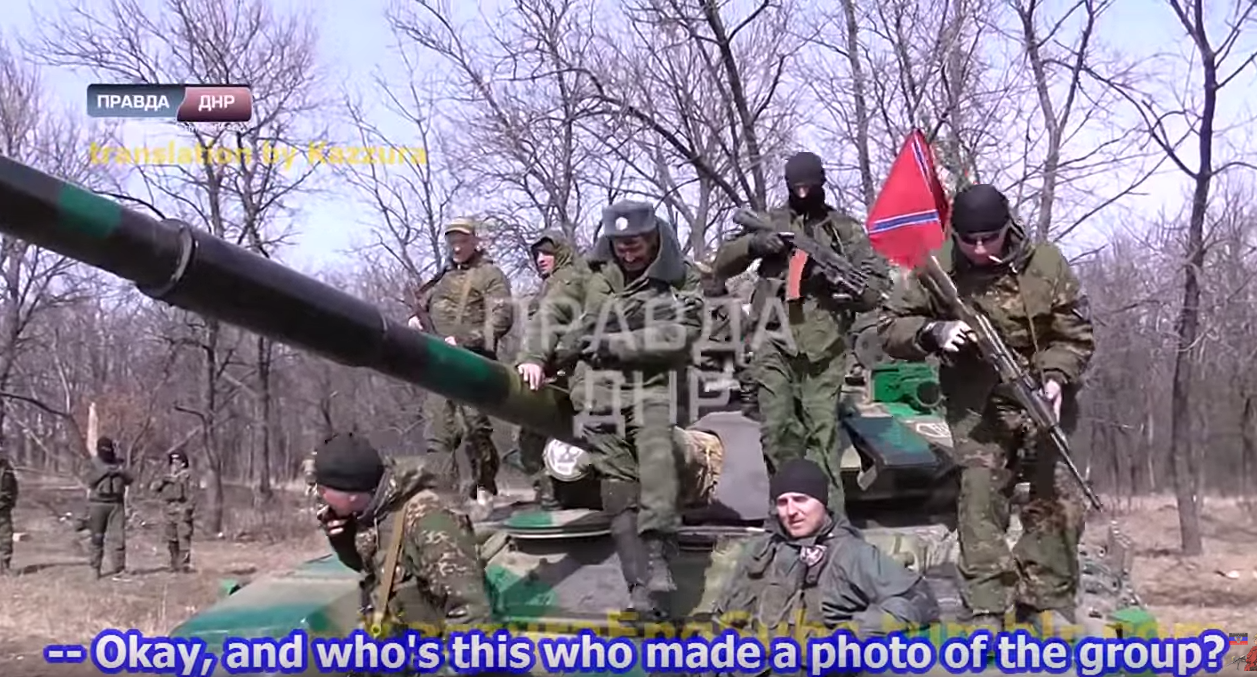
While the location of the exercise is not named, the use of Bezler’s nom de guerre suggests a possible connection with Gorlovka. However the tanks filmed in March bear different ‘tactical markings’ – symbols denoting the unit to which a vehicle belongs – to those filmed this week.
Here is the tactical marking used by the T-72BMs in March:
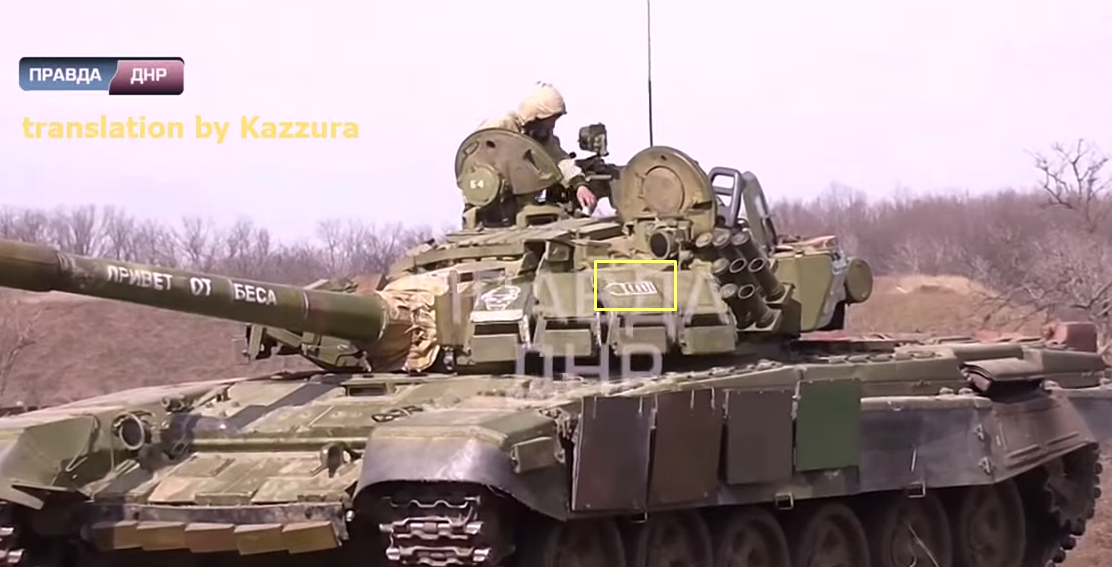
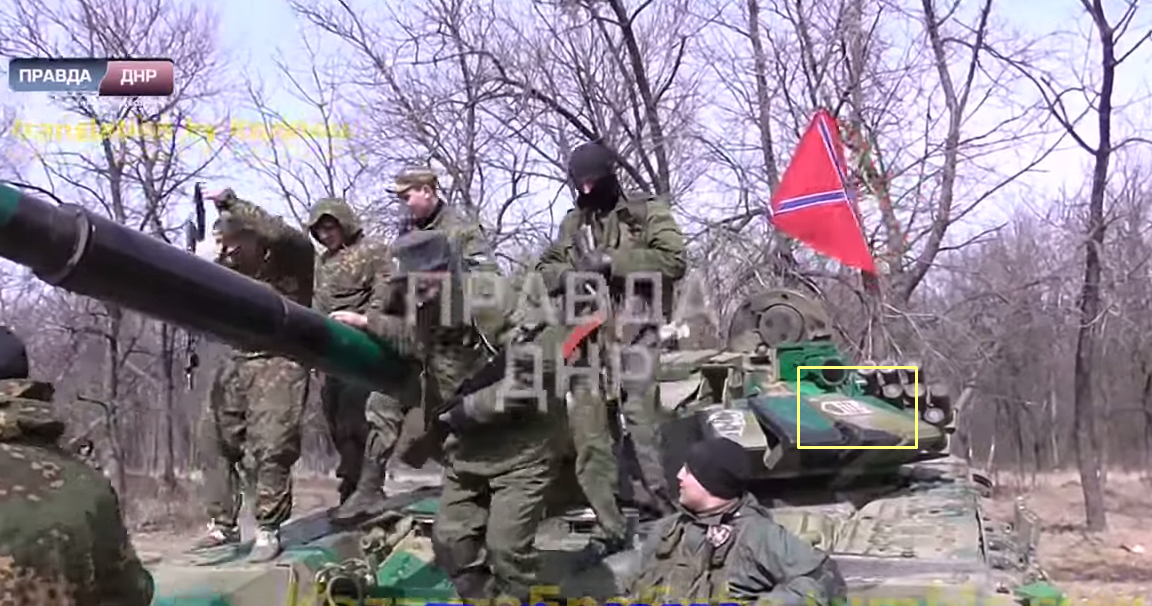
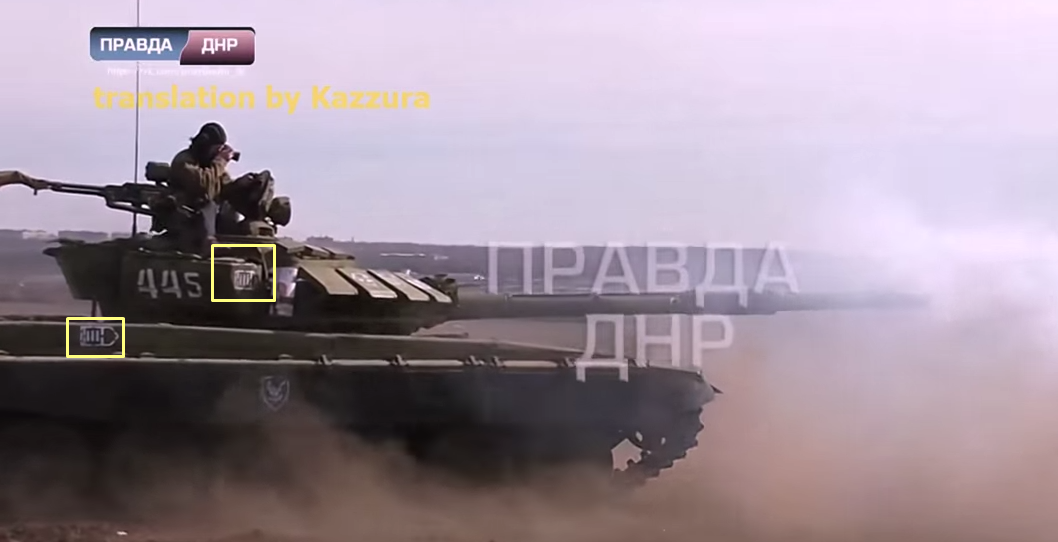
And here are the markings seen in Gorlovka this week
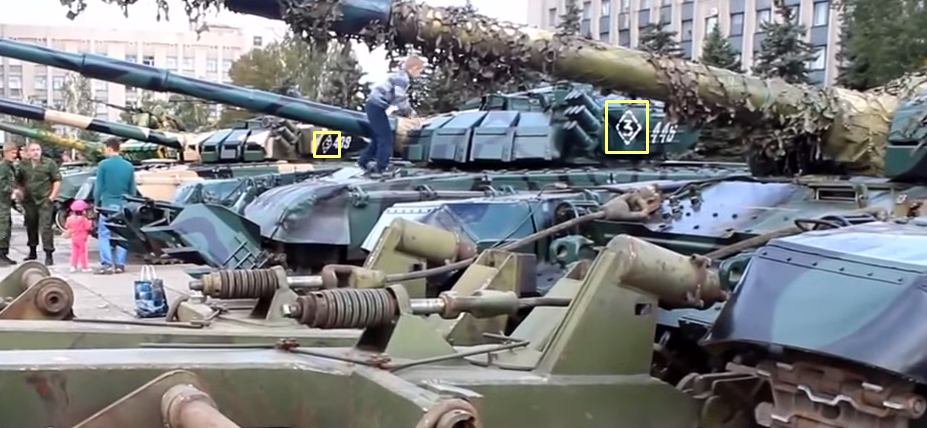
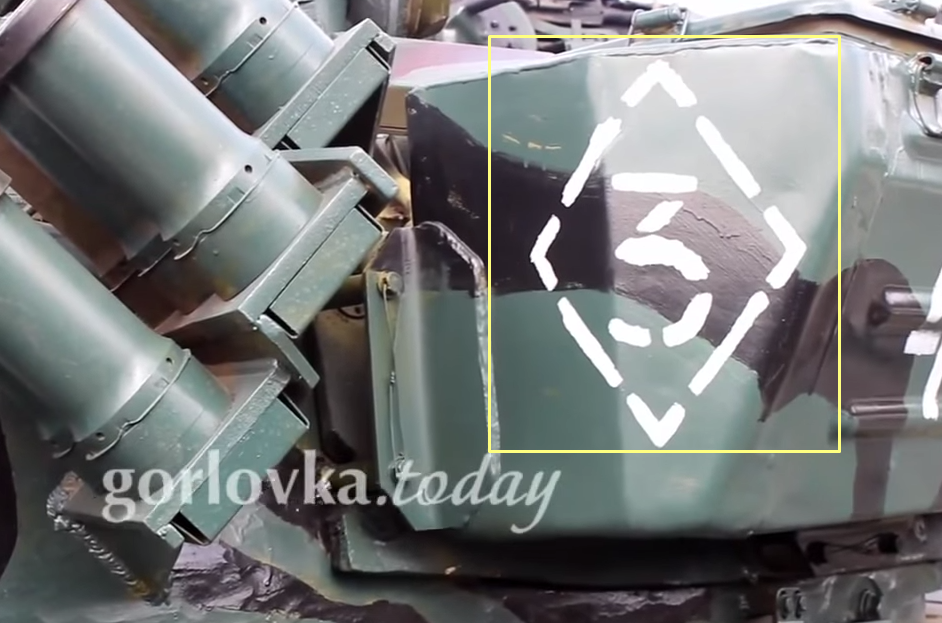
Of course the Russian army may have switched codes with their tactical symbols in the region between March and September, which would allow the possibility that these tanks are part of the same unit.
Whether this is a development instigated at the local level of command in the Gorlovka area or a new arrangement recommended by those higher up in the Russian army, it reveals that the Russian armed forces are adopting new methods to enhance their tanks survivability.
Furthermore, at a time when fighting appears to be focused in the Gorlovka area, upgraded Russian tanks are now deployed to the town. Could this suggest preparations for a new push in the area?
— Pierre Vaux
A court in the Russian border town of Donetsk has decided to extend Nadezhda Savchenko’s detention by another six months.
Mark Feygin, a lawyer for Savchenko, a Ukrainian military officer captured by Russian-backed fighters near Lugansk last year and illegally transported to Russia where she is on trial for the alleged murder of two journalists, tweeted that the judge had granted the prosecution’s request and extended her detention.
The defence argues that Savchenko, as a Ukrainian MP and member of the Parliamentary Association of the Council of Europe (PACE), has diplomatic immunity and should therefore be released immediately.
The Ukrainian consulate has also offered to guarantee her stay in Moscow if she is released on house arrest.
The Donetsk court has rejected this appeals once again.
Today’s court hearing continues this afternoon.
While the defence team has already provided evidence that Savchenko was, in fact captured before the attack took place, they are arguing today that the checkpoint at which the two Russian state television journalists, Igor Kornelyuk and Anton Voloshin, were killed a mortar attack was a military target. The case would therefore not amount to murder even if Savchenko had not been detained.
The video of the attack, they say, shows men in camouflage uniforms, without press insignia, wounded after the mortar strike.
The Ukrainian military reports that low-level fighting has continued over the last day, with attacks concentrated to the north and east of separatist-held Gorlovka.
Yesterday evening, the ATO Press Centre claimed that Russian-backed forces had attacked Ukrainian positions in Zaytsevo, which had also been on the evening of September 13, with snipers and small-arms fire. To the east of Gorlovka, there were attacks during the afternoon on Ukrainian troops near Sanzharovka and in Lozovoye.
According to this morning’s report from the Press Centre, these attacks continued overnight.
At around 18:00, Russian-backed fighters attacked a Ukrainian defensive position near the village of Mayorsk, north of Gorlovka, with heavy machine guns, grenade launchers and small arms.
Later, at around 20:00, Ukrinian troops in Lozovoye came under small-arms fire. At 22:20, there was another attack near Sanzharovka.
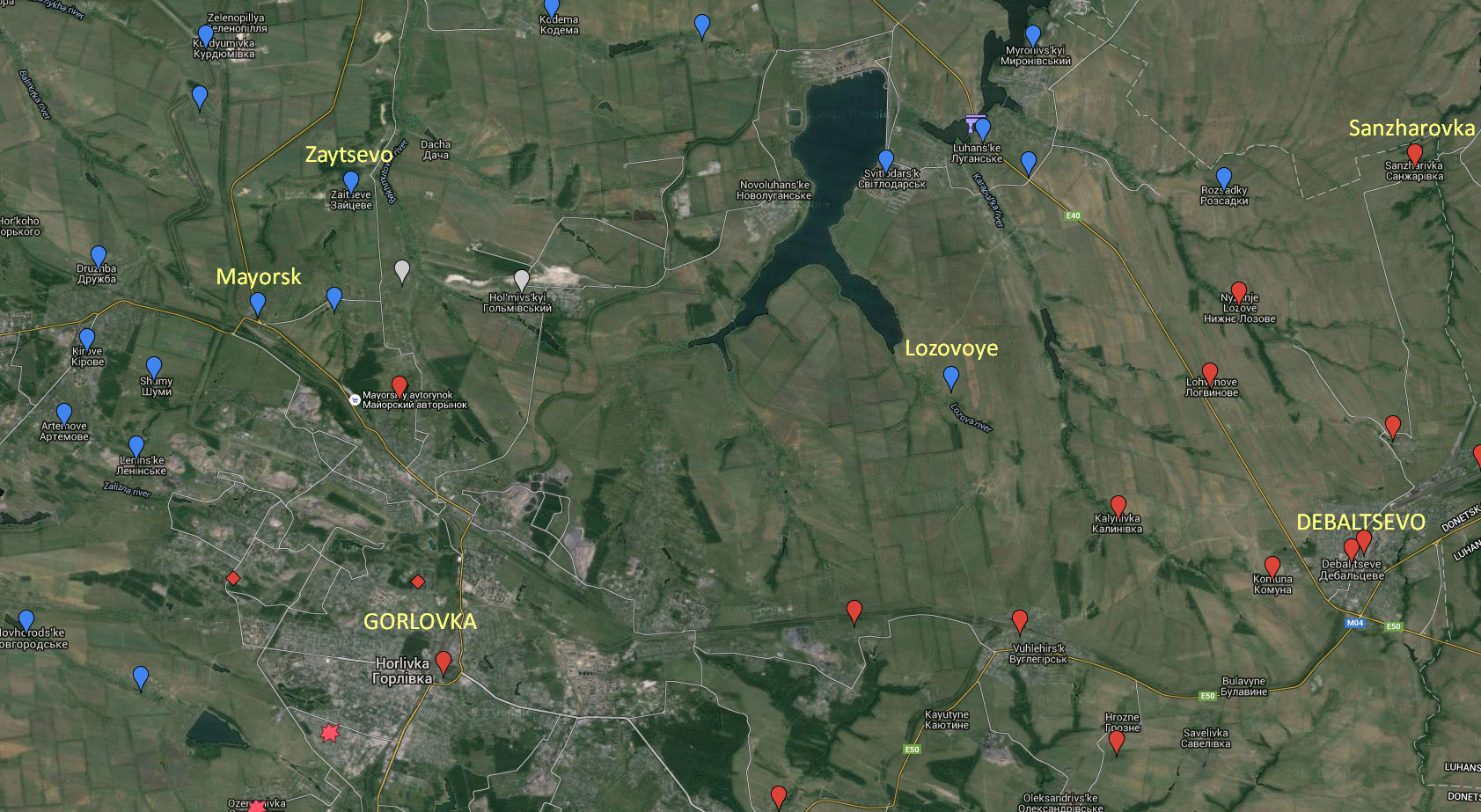
Today, at around 3 am, the Ukrainian military claims that Russian-backed fighters fired on the village of Krymskoye, in the Lugansk region, with small arms.
Ruslan Tkachuk, spokesman for the military operation in the Lugansk region, said today that Ukrainian troops in Krymskoye had not returned fire.
Meanwhile the ‘defence ministry’ of the self-proclaimed Donetsk People’s Republic (DNR) claimed today that Ukrainian “nationalist battalions and mercenaries” had violated the ceasefire six times over the last 24 hours.
According to the ‘ministry,’ Ukrainian forces had used tanks, infantry fighting vehicles and small arms to fire on Naberezhnoye and Sakhanka, near Mariupol, Staromikhailovka, west of Donetsk, Spartak, in the north-east of the city, and a mine in the centre of Gorlovka.
Colonel Oleksandr Motuzyanyk, a military spokesman for the Ukrainian Presidential Administration, announced at noon today that two Ukrainian soldiers had been wounded over the last 24 hours.
One was wounded by a grenade fired by Russian-backed forces near Mayorsk, the other by a landmine near Avdeyevka, north of Donetsk.
— Pierre Vaux